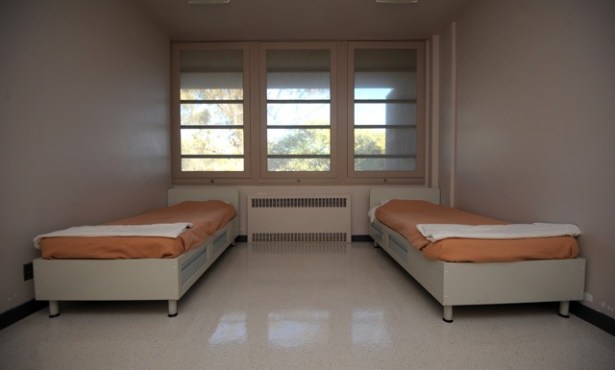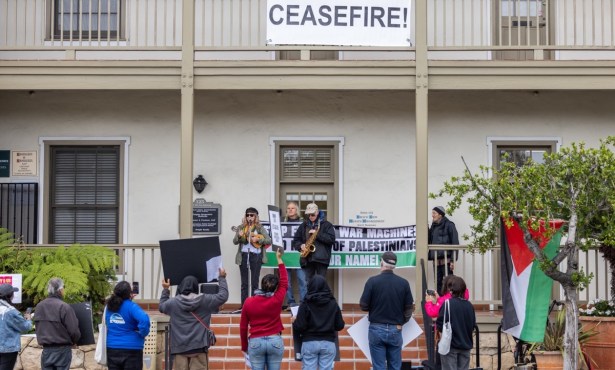Making It Work at Work
More Than 50 Percent of Gays Do Not Disclose Their Sexuality at Work
There are a lot of things to really love about my job. I maintain a flexible schedule, have Diet Coke and coffee always at the ready in the kitchen, and am never lacking in opportunities to interview interesting people and write about compelling subjects. Aside from the fact that my office is the absolute coldest room in the building (seriously, it’s an icebox), I can’t think of much I’d like to change. Don’t even get me started on the weekly wonderfulness of Bagel Wednesdays, when management coaxes the staff into the office with free breakfast to help us get through our morning press deadlines. Yes, it is as good as it sounds.

As an added bonus, my coworkers are some of the most intelligent, well-connected folks in Santa Barbara. They are also some of the kindest and most thoughtful people I’ve ever met. In the days after I came out to my parents, they provided an immeasurable amount of moral and emotional support, and, more recently, when my girlfriend had a medical emergency and was hospitalized, they all were completely understanding of my spotty attendance and distracted thought process.
Our editor-in-chief purposefully created this open, familial culture at The Independent, so I’ve felt more than comfortable being honest about my sexuality. But not all workplaces are as welcoming. In a nationwide study done by the Human Rights Campaign Foundation and released last Monday, researchers found that 51 percent of lesbian, gay, bisexual, and transgender people choose not to disclose their sexuality at work. The main reasons given were fear of losing connections (39 percent) and concern about not being considered for advancement (28 percent), while a staggering 13 percent said they fear for their personal safety.
Congenial chitchat around the water cooler and even more productive work-oriented conversations more times than not involve at least a slight reference to employees’ social lives, making for an uncomfortable situation if someone fears making known his or her sexual identity. Although I’ve never worked in anything close to a hostile environment, there have been numerous occasions when I’ve elected to keep my sexuality secret because I was unsure of the reaction it would elicit. I may not have feared for my safety, but I suspected that it might make people treat me differently.
Interestingly enough, the day after the aforementioned study was released, the U.S. House of Representatives’ Education and Labor Committee held a hearing regarding the Employment Non-Discrimination Act (ENDA), a bipartisan-sponsored bill that hopes to include sexual orientation and gender identity in federal discrimination law. The current federal policy outlaws employer discrimination based on age, disability, national origin, race, religion, genetics, or sex. California law, however, takes it a step further and protects workers from discrimination based on sexual orientation or pregnancy. As a rule, the more rigorous guidelines have to be followed, meaning California employers must adhere to the more strict state law, but a state that only prohibits discrimination based on, say, age must follow federal law since it’s more stringent. The importance of ENDA is that it would codify a more inclusive anti-discrimination policy on a national level, thus effectively granting legitimate protection to workers in the 29 states where it’s still legal to fire someone for being gay and in the 38 states where it’s still legal to fire someone for being transgender.
Reading over the proposed measure, I was struck by my conflicting responses, which ranged from feeling lucky to live in a place like California and work at a company like The Indy to feeling bewildered by the irony of possibly seeing ENDA passed before the repeal of the military’s policy of Don’t Ask, Don’t Tell. Whenever issues like this come across my desk, I’m often simultaneously overwhelmed by how far this country has come and how far it has to go; it’s an excellent lesson that persistent phobias continue to haunt us.
Furthermore, it’s only one phase in the overall goal of full inclusion and equality for the gay community. After all, even if ENDA becomes a reality, people may still decide to conceal their sexuality at work out of fear. As the Human Rights Campaign Foundation’s Daryl Herrschaft stated recently, “We’ve found that inclusive nondiscrimination policies and equal benefits are the essential first step toward cultivating a productive and engaged LGBT employee, but they are not the last step.”



